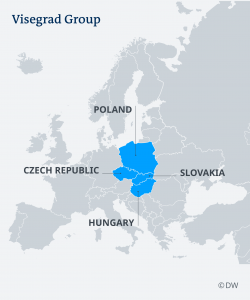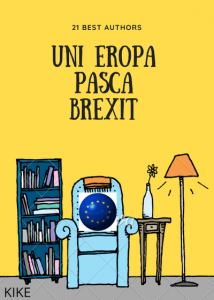APEC 2020 & INDONESIA IN THE MIDST OF GLOBAL PANDEMIC

Hendra Manurung, is currently a doctoral candidate of International Relations, Padjadjaran University, Bandung; Teuku Rezasyah is an Associate Professor of International Relations at the same university
Malaysia was assigned to host the APEC meeting in 2020, and hope the commitment of APEC leaders’ countries to the multilateral trading system. This commitment is important in order to maintain global market and financial stability so that global trade and foreign investment guarantees continue to flow in times of crisis and global economic recession.
The APEC 2020 event theme is ‘ Reimagined: Priorities in the Aftermath of COVID-19’. Indonesia, through its ministry of trade, highlights APEC contribution in the midst of a global pandemic outbreak being relevant to overcome global uncertainty in the current economy and trade outlook.
In fact, for two years in 2018 and 2019, the APEC leaders’ forum failed to reach a final agreement at the APEC leader level to overcome various global challenges.
As the host, Malaysia faces considerable challenges, namely the achievement of the Bogor Goals target which is still not as expected, it is not easy to formulate a new post-2020 APEC vision that can accommodate the interests of the entire APEC economy, and high hopes for a joint declaration at the APEC leadership level.
However, apart from the need to ensure the growth of the digital economy, it also needs a sustainable inclusive economy and the optimal use of digital platforms in financial transactions. Furthermore, it is necessary to ensure and simplify cooperation between the government and the private sector in the Asia Pacific countries region.
Indonesia, China, together with a number of leaders of APEC member countries in the APEC annual meeting in Kuala Lumpur, Malaysia were held virtually to encourage a more open, transparent trade, and strengthen multilateral cooperation. It is hoped that these norms, principles, and steps will greatly support the performance of the global economy which is being severely affected by the COVID-19 pandemic.
President Joko Widodo has prioritized the importance of developing a favorable climate for foreign investment in Indonesia and the Asia Pacific region. It is possible that the Omnibus Law will improve the business climate and support national economic growth, along with regulatory and bureaucratic reforms. This is important considering the flexibility of regulations and the dexterity of the Indonesian bureaucracy in dealing with the current difficult times so that it is ready to open the widest possible door for businessmen and investors through the application of new methods.
The Omnibus Law which massively simplifies various regulations is said to aim to create a quality business and investment climate for business actors, including micro, small and medium enterprises. Although, this decision has sparked resistance, protests, and controversy in the country, however, it is expected that this regulation will be able to reduce overlapping regulations and complicated and complex procedures. The cumbersome licensing bureaucracy was also reduced. Illegal fees that have hindered business and investment entry are eradicated.
This rule also makes it easier for MSME business actors, where they do not need to apply for a permit but simply register the type of business. The entire licensing process is integrated into an electronic system through an online single submission.
Business activities and investing are made easier and less difficult. The formation of a limited liability company is made simpler and there is no longer a minimum capital limitation. Patents and brands are also being processed accelerated. Land acquisition and optimization of land utilization for public interest and investment will be much easier.
The APEC economy is expected to become a pillar of world economic stability by focusing on equitable economic cooperation so that all levels of society can participate and enjoy economic prosperity equally. APEC’s contribution can be achieved by boosting human resources potentials. It is very important to support sustainable economic growth in member countries including Indonesia which is also in line with the vision of the central government.
Suppose Indonesia will play a proactive role as Southeast Asia leading economy in supporting the implementation of the APEC blueprint related to strengthening the global value chain for the 2020 to 2025 periods.
Indonesia’s active role is in accordance with President Joko Widodo’s direction in RPJMN 2020 to 2024 in supporting Indonesia’s economic transformation, from dependence on natural resources shifting to an economy based on manufacturing competitiveness and the provision of high-value-added modern services.
It is certain that Indonesia will cooperate closer with other pioneer countries in the world economy, such as China and the US, in designing a capacity-building program for the APEC economy to gain more benefits from the global supply chain.
It is most likely that Donald Trump will represent the US at APEC 2020 Summit. Trump’s presence will be his second participation after 2017. Trump has been criticized for being less involved in the East Asia Summit in early November as part of the 2020 ASEAN Summit activities held virtually in Hanoi, Vietnam.
Chinese President Xi Jinping promised to open up his domestic market more widely, actively cooperating with all countries, regions, and companies.
Xi Jinping stressed that China’s gross domestic product has reached 10,000 US dollars per year. The number of Chinese middle-class citizens currently reaches more than 400 million people. Various international agencies are projecting that the Chinese retail market in 2020 will penetrate the US $ 6 trillion.
Thus, it is certain that there will be greater demand for quality products, the use of information technology, and the standardization of service quality from around the world.
It is expected that through the signing of a regional economic comprehensive partnership (RCEP) will have an important meaning in global trade and sustainable multilateral cooperation for economic integration in the Asia and Pacific region.
Moreover, with the election of Joe Biden as the 46th US president in early November 2020, it is hoped that the US government will be more constructive and emphasize goodwill in dealing with other countries in the region without conflicting with other economic powers.
RCEP for developing countries can reduce trade barriers to agricultural products, manufactured goods, and components that make up the majority of their exported commodities.
However, the RCEP partnership is considered to have little to do with trade in services and the availability of access for various companies to operate in their respective economies, something the US and other developed countries want.
Also, it is necessary to gradually reduce tariffs and institutional costs, develop a number of import trade promotion innovation demonstration zones, and expand product imports and strengthen high-quality services in all member countries.
Most APEC countries face unprecedented times, demanding bold responses along with the world’s greatest health and economic crisis of a hundred years. For sure, these challenges demand sustaining cooperation, coordination, and collaboration actively without any left behind through market integration, creative innovation, and regional inclusion.
The crisis response remains a pressing concern in many economies, and requires an ongoing focus on ensuring access to essential medical supplies and services, including vaccine availability; keeping supply chains functioning, and avoiding fragmented policy approaches, including in the digital economy and the safe resumption of travel. These would serve to revive all business activities and market demand that would accelerate global economic recovery.
Free and open trade and investment have indeed resulted in greater prosperity within the Asia Pacific along with underscoring the fact that benefits accruing from trade and investment have not permeated across all segments of all society.
Even today, there is much room for us to improve the narrative of trade and investment with a view to bring tangible benefits to all people fairly.
To conclude, APEC’s success key is openness, cooperation, and transparency amongst member-countries to look for Asia Pacific economic recovery sooner or later.










